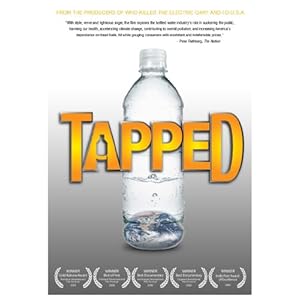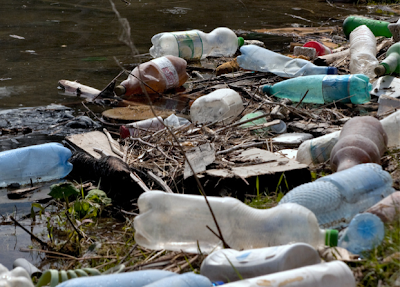from an article in couriermail:
ACTION group Do Something has found that people are buying bottled water at up to 10 times the price of petrol.
David Jones' Voss brand water costs $10.95 for 800ml, while bottled water at a BP garage at $3.59 was nearly three times the price of the station's petrol.
Group founder Jon Dee has launched a campaign to find the nation's most expensive bottled water.
Yesterday, Mr Dee said Australians spent more than half a billion dollars on bottled water every year, despite high quality drinking water being available for next to nothing out of the tap.
The price of main-stream bottled water in hotels, restaurants and convenience stores was exorbitant, he said.
Examples included $7 for a litre of Mt Franklin water at Mirvac Hotels.
Tap water in Brisbane cost around $2.01 for 1000 litres and most leading bottled water brands charged more than that for just one litre.
"Where bottled water is just filtered tap water, how can they justify the high price?" Mr Dee said.
In 2008, a British study found that a bottle of water had the same impact on the environment as driving a car 1km. Its production generated up to 600 times more carbon dioxide than tap water.
Clean Up Australia chairman Ian Kiernan, also an anti-bottled-water campaigner, said the product is destructive to the environment.
The bottles are becoming a major litter problem, with a Clean Up Australia survey finding plastic beverage and other containers account for about half of the top 10 litter items.
Mr Dee said buying bottled water had to be anti-environment, given the carbon road miles racked up in delivering a useless product.
"All you are doing is paying through the nose to buy a plastic bottle that's damaging," he said.
Mr Dee said testing showed there was no difference in quality between tap and bottled water.
Submit your highest bottled water prices at www.GoTap.com.au





 “I do spend some of my time on bottled water… but I have other responsibilities as well,” says Lauren Robin, the one employee at the FDA in charge of ensuring that the bottled water industry meets federal safety guidelines. But since 60-70% of bottled water is produced and sold within state lines, the FDA has no jurisdiction to regulate the safety of bottled water anyway. This snippet of information alone is enough to make viewers stop and think about the safety of bottled water. And considering that this section of Tapped (a new documentary from the producers of Who Killed the Electric Car?) comprises only about 60 seconds of the entire 76-minute film, it’s fairly clear that it makes a strong case against the bottled water industry. And lest conservatives protest, this is no “liberal” screed. Filmmaker Stephanie Soechtig cut her teeth working on “The O’Reilly Factor”, Bill O’Reilly’s nightly conservative platform. Whether that makes her a more reliable story-teller or not is up to viewers, but she certainly learned a thing or two about framing questions to cause a stir.
“I do spend some of my time on bottled water… but I have other responsibilities as well,” says Lauren Robin, the one employee at the FDA in charge of ensuring that the bottled water industry meets federal safety guidelines. But since 60-70% of bottled water is produced and sold within state lines, the FDA has no jurisdiction to regulate the safety of bottled water anyway. This snippet of information alone is enough to make viewers stop and think about the safety of bottled water. And considering that this section of Tapped (a new documentary from the producers of Who Killed the Electric Car?) comprises only about 60 seconds of the entire 76-minute film, it’s fairly clear that it makes a strong case against the bottled water industry. And lest conservatives protest, this is no “liberal” screed. Filmmaker Stephanie Soechtig cut her teeth working on “The O’Reilly Factor”, Bill O’Reilly’s nightly conservative platform. Whether that makes her a more reliable story-teller or not is up to viewers, but she certainly learned a thing or two about framing questions to cause a stir.















